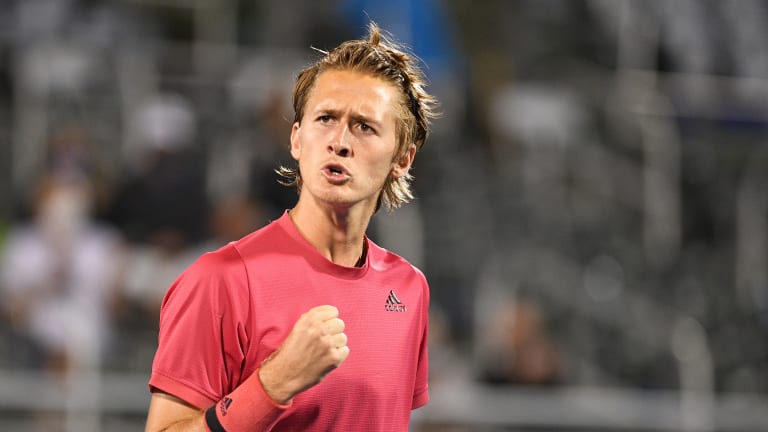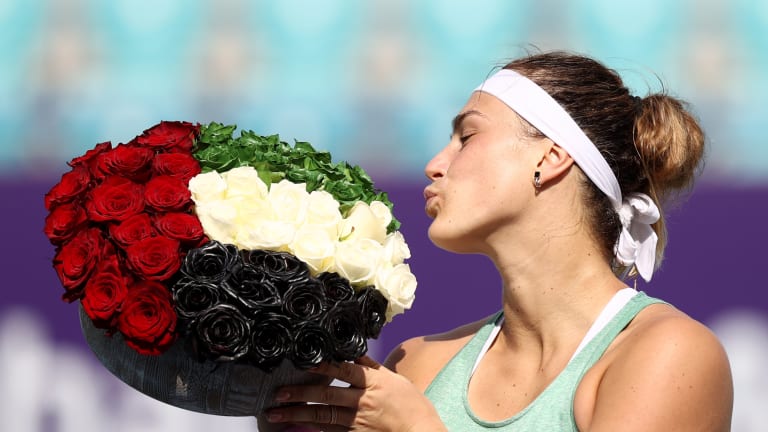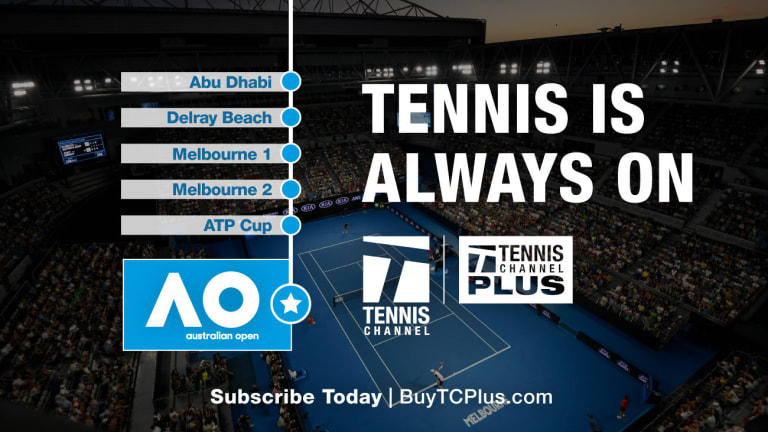ATP Delray Beach, USA
Korda injects new life into U.S. men’s tennis; Sabalenka unstoppable
By Jan 14, 2021ATP Delray Beach, USA
"He's a good looking guy": Sebastian Korda plays off Delray Beach emcee's slip-up after Cobolli win
By Feb 22, 2026ATP Delray Beach, USA
Inspired by his mom's attendance, Learner Tien mounts Delray Beach comeback against Tiafoe
By Feb 21, 2026ATP Delray Beach, USA
Taylor Fritz overcomes 'incredibly tough' wind, old friend Tommy Paul to win again in Delray Beach
By Feb 19, 2024ATP Delray Beach, USA
What Sunshine State? Delray Beach final between Taylor Fritz, Tommy Paul postponed
By Feb 18, 2024ATP Delray Beach, USA
Taylor Fritz, Frances Tiafoe, Tommy Paul or Marcos Giron will win Delray Beach title
By Feb 17, 2024ATP Delray Beach, USA
The Office or The Tour: What’s next for Matija Pecotic?
By Feb 16, 2023ATP Delray Beach, USA
For Matija Pecotic, a part-time player who works full-time in finance, it's been a long way to Delray
By Feb 15, 2023ATP Delray Beach, USA
Sebastian Korda among competitors through to Delray Beach quarterfinals
By Feb 17, 2022ATP Delray Beach, USA
American hopeful Victor Lilov just turned 18, but his deep passion for tennis may rival anyone's
By Feb 12, 2022Korda injects new life into U.S. men’s tennis; Sabalenka unstoppable
The Belarusian followed "her feelings” and hammered her way to her third straight title, in Abu Dhabi, How far can she follow them in 2021?
Published Jan 14, 2021
Advertising

Korda injects new life into U.S. men’s tennis; Sabalenka unstoppable
© Getty Images
Advertising
Korda injects new life into U.S. men’s tennis; Sabalenka unstoppable
Advertising

Korda injects new life into U.S. men’s tennis; Sabalenka unstoppable
© Getty Images
Advertising

Korda injects new life into U.S. men’s tennis; Sabalenka unstoppable